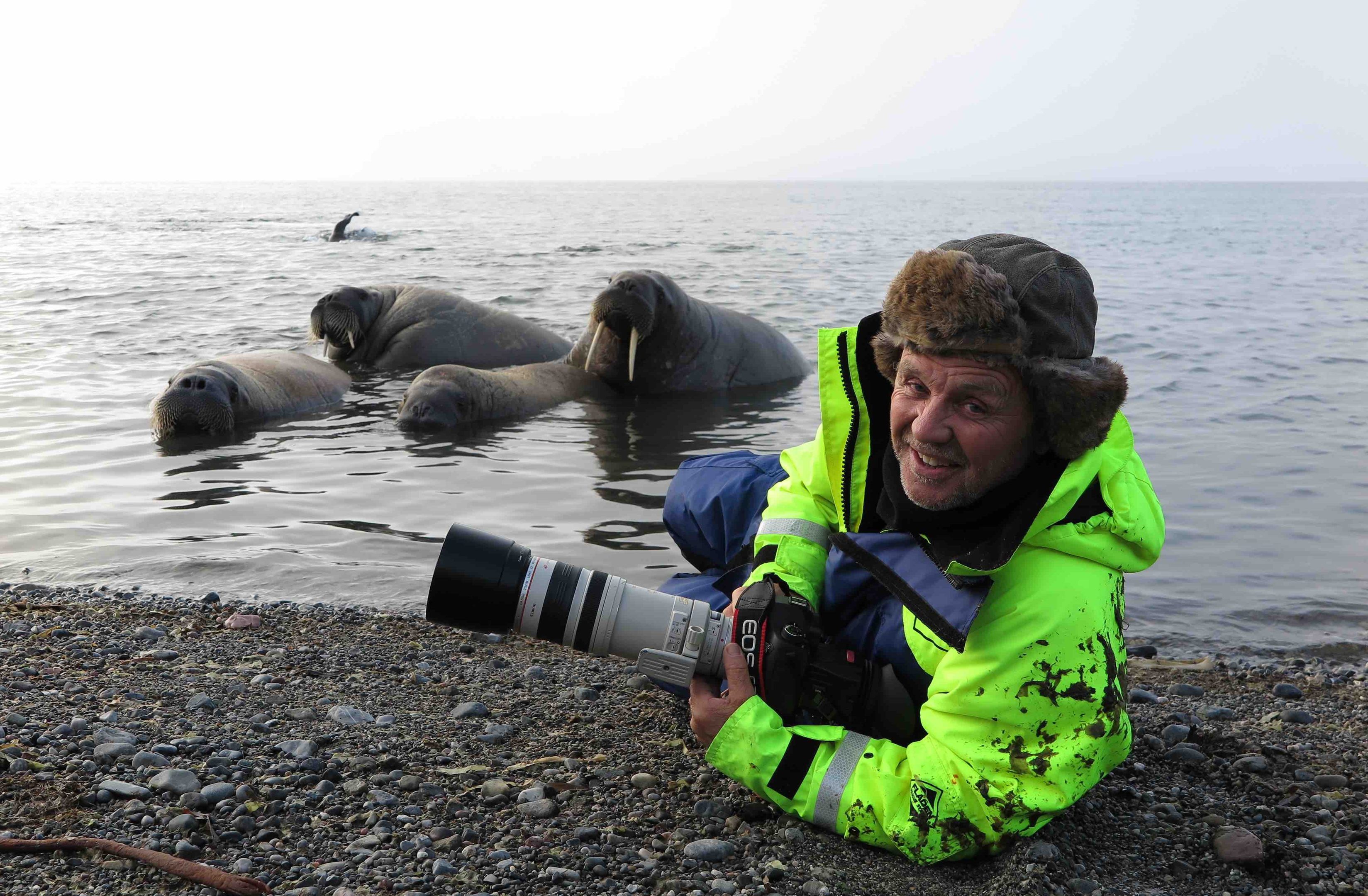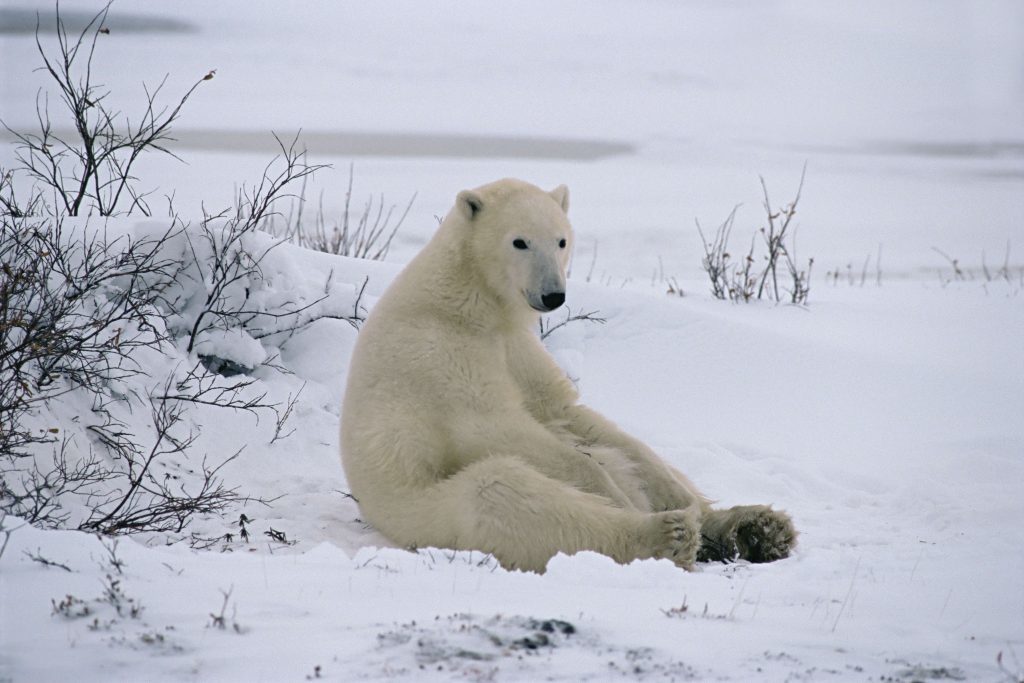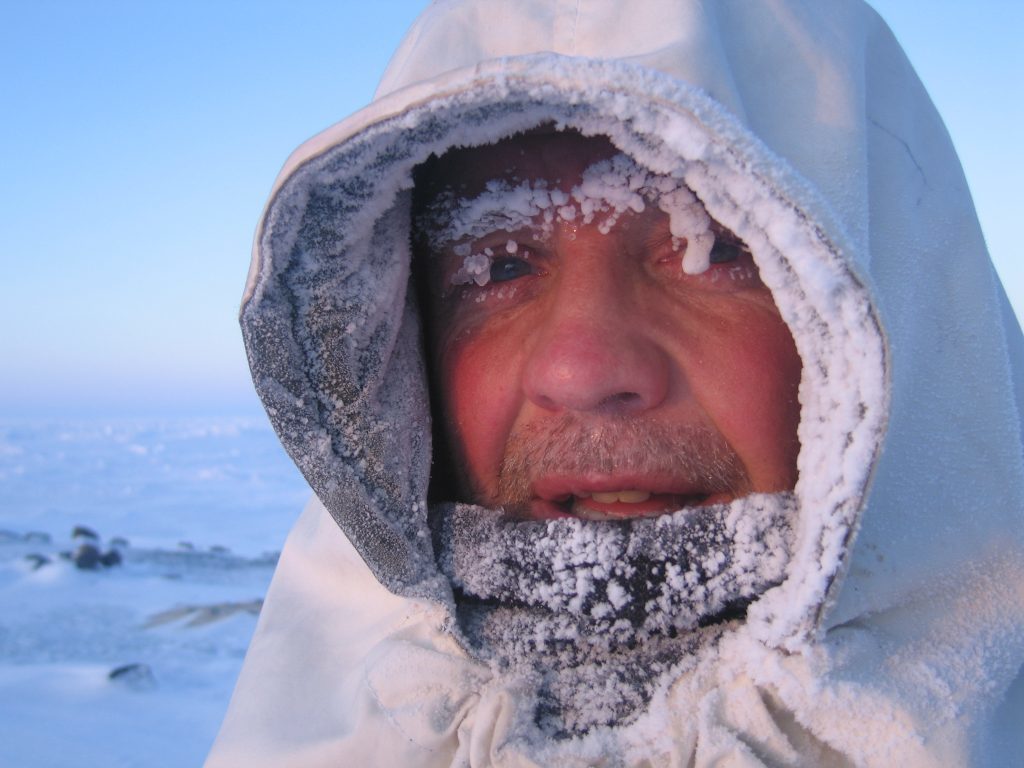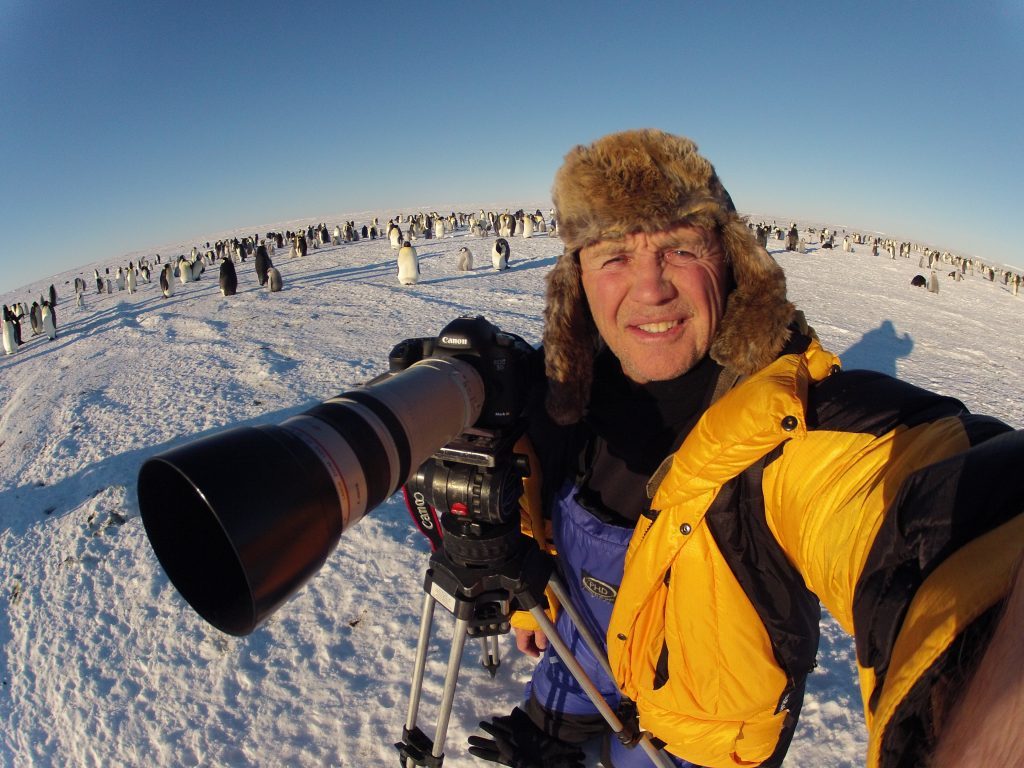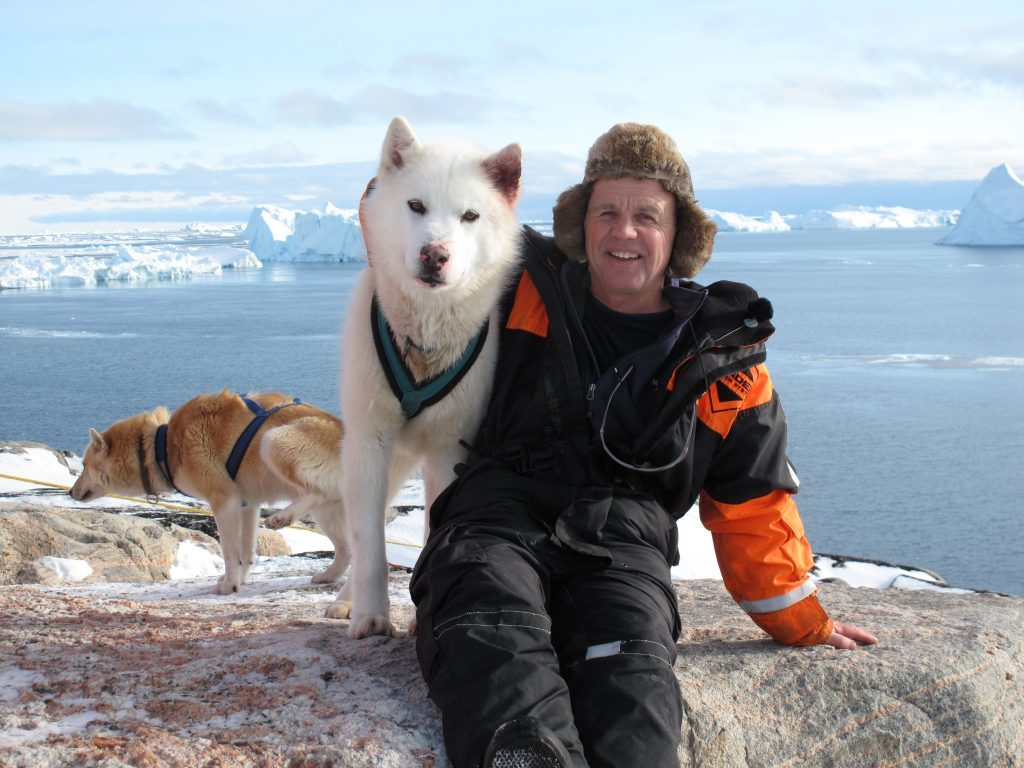When it was reported recently that a giant iceberg twice the size of Luxembourg has broken off an ice shelf on the Antarctic peninsula and is now adrift in the Weddell Sea, it was not much of a surprise to freelance wildlife and documentary cameraman Doug Allan.
The Fife-born 66-year-old first visited the polar regions in 1976 and during the 41-years since has witnessed the effects of climate change, including the impact that global tourism and human lifestyles continue having on the planet.
But while he’ll certainly be exploring the challenges of climate change when he gives an illustrated talk in Birnam on Friday – and hopes that younger members of the audience might be inspired to “make a difference” with their lives – he insists it won’t all be “doom and gloom”!
“The talk is called Wild Images, Wild Life and will be re-capping on my career and how I got into wildlife,” explains the Stirling University marine biology graduate who went on to develop his love of nature with a love of diving.
“I’ll be giving a behind the scenes look at things like the polar bear coming out of the den shot I did for the BBC, but inevitably I will be talking about the challenges of climate change, because the big changes that are happening in the environment are not a good sign.”
Now based in Bristol, Doug has happy memories of the Birnam area. He learned to dive at the Hermitage, near Dunkeld, decades ago and is pleased his talk will support the Birnam Arts Centre and the Scottish Wildlife Trust’s Loch of Lowes reserve.
It’s his experience of working around the world, however, which will feature most prominently in his talk.
Doug’s big break came in 1976 when he first went to the Antarctic to work as a research diver on the British Antarctic Survey station at Signy Island in the South Orkneys.
The job entailed helping the scientists to carry out their underwater studies, from boats in the summer, beneath the ice in the winter. It was the start of an affair with ice that lasts to this day.
Over the next 10 years until 1985, he spent four winters and nine summers “down south” in that time, and was awarded the Fuchs Medal, then the Polar Medal, for his work.
Then his career took a new direction when the BBC took first option on buying his Emperor Penguin footage for their series Birds for All Seasons.
He went on to propose and make two films for Survival Anglia.
Since then, he has returned frequently to both the poles, with a string of high profile award winning films and series for the major TV networks worldwide including The Blue Planet, Planet Earth, Life, Human Planet and Frozen Planet.
He has made over 70 filming trips, including orcas attacking grey whales off California, polar bears trying to capture belugas in a frozen hole in Arctic Canada, and killer whales washing seals off ice floes in Antarctica – all on screen firsts.
*Doug Allan: Wild Images – Wild Life, Birnam Arts Centre, July 21
